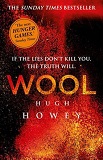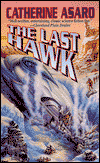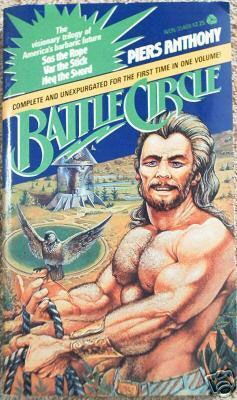
Wool, by Hugh Howey
Book Review by SJ Higbee
Like many others, I was intrigued to read about the success of this self-published author, who has managed to sell the print rights to the book to Random House for distribution around the world, while keeping the ebook rights himself. He started publishing this book in a series form through Kindle Publishing and as it steadily gained in popularity, it turned into the current trilogy -- Wool, Shift and Dust. It also accounts for the episodic structure of the book, which is divided into different sections from the different viewpoints of the protagonists.
In the ruined and hostile landscape, in a future few have been unlucky enough to survive, a community exists in a giant underground silo. Inside, men and women live an enclosed life full of rules and regulations. But some people choose not to conform. There are the people who dare to hope and dream. These are the dangerous ones. Jules is one of these people. She may well be the last.
So... a dystopian, science fiction thriller, fraught with tension where a tiny handful of the awkward squad begin to pose major problems for the status quo. Sounds familiar? And if you haven't already got there, a label on the front proclaims this THE NEXT HUNGER GAMES. Is this correct? Only up to a point. While superficially the two books seem to be covering the same ground, there are some crucial differences.
The Hunger Games -- see my review here -- is an exploration of how a struggle against injustice and overwhelming odds can take place in a society where the masses place great importance on a chosen few to act out their own latent yearnings for action and danger. It very cleverly aligns many of our increasingly passive habits and appetite for spectacle, acted out in hundreds of tweets and Facebook posts, with the viewing habits of the Capitol's inhabitants. These are aspects not even touched upon by Wool.
Wool is a gripping story revolving around Juliette. Bright, innovative and hardworking, you'd think she was an ideal Silo citizen. And yet she makes the upper echelons nervous -- she is too imaginative and fond of thinking creatively. People who dream, or wonder too much about life in general -- and particularly how it could be improved and altered within the current setup, are considered dangerous. Because what becomes increasingly clear as the book continues, is the ever-present danger of an uprising, or war. And the constant worry that this fragile pocket of humanity, existing in their hard-grafting world, could be snuffed out. For uprisings have happened before. And this is the fascinating theme of the book. What if a careful template for human survival is initially laid down that will maximise the resources, allowing for an ongoing community to exist for however long it takes for the toxic conditions reigning above ground to finally modify? What if the leaders aren't charged with maximising the potential of each person living within the silo to ensure their lives are as rich and full as possible -- what if, instead, they are simply charged with following this template?
It took me a while to become accustomed to the sudden shift in tone and viewpoint as each section came to an end, but once I became used to it, I was fully engrossed. Life in the silo is chillingly captured. Howey's sensuous, pacey style had me in there, trudging up and down the never-ending spiral staircase which effectively stratifies the community both physically and socially. Those right at the top get the outside views, the best food, uninterrupted light and power. Those at the bottom work long hours in poor conditions, eating monotonous, poor quality food in a dirty, dangerous environment.
If you haven't yet picked up a copy and have any appetite at all for well written dystopian fiction, then go and track it down. I find the grim silo existence still popping into my head regularly when I thought I was thinking about something else -- and I have a hunch it's going to continue to do so.Brainfluff
|
Click here to buy Wool, by Hugh Howey on Amazon
|
Wool, by Hugh Howey on Amazon

| More Books You Might Like |
| Comments on Wool, by Hugh Howey |
| There are no comments on this book. |



